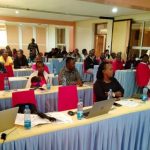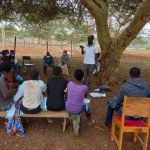Hope. Without it life loses meaning. And such was the case for Asha Lesuyai. The 17-year old student at Loosuk Mixed Secondary School had just cleared Form Three in the year 2019 when she discovered she was pregnant. By the time she entered Form Four the following year, she was in a state of confusion and self-condemnation. Without help or necessary counsel, she was in school for no more than two months before dropping out, such was the shame she carried.
Conceiving at such a tender age all at once shattered and incensed her desperately poor pastoralist parents. While the pregnancy took her by complete surprise and she felt deeply disappointed in herself, it was the loss of her parents’ faith in her that was most heartbreaking. “I lost my sense of self-worth,” she says. “I had just wasted my chance of getting a decent education and making something of myself.”
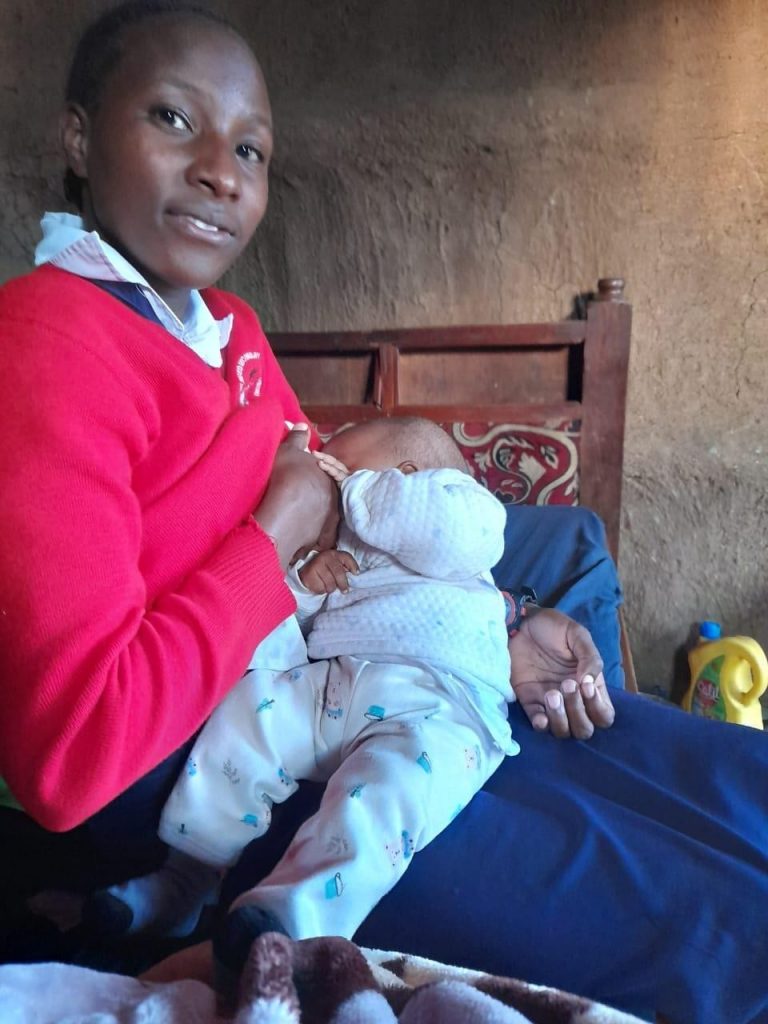
Ashamed and weighed down by guilt and the enormous realisation that she was going to be a mother, Asha contemplated getting married as a way out of her miserable state. She later returned to do her Kenya Certificate of Secondary Education final examinations, and managed to score a D. She would have joined the hundreds of thousands of intelligent Kenyan girls whose bright futures get suddenly and everlastingly dimmed by teenage pregnancy, had she not come across the Adolescent Biotisho Integrated Project.
Biotisho, as it is simply called, is a UNICEF-funded project being implemented in the county by Centre for Behaviour Change Communication (CBCC), a local NGO, to improve the nutritional status of adolescent boys and girls. It was launched in September 2020 after a study discovered alarming levels of malnutrition among local adolescents. The study identified the causes of malnutrition as poverty, illiteracy, low access to safe and adequate water sources, and poor diet.
In crafting solutions to this problem, the Biotisho project targeted out-of-school adolescents aged 10 and 19. They would be reached through community health volunteers (CHVs) in schools, via the community and religious leaders, at health facilities and through radio broadcasts. It was the work of the female and male CHVs to mentor the girls and boys respectively in a social behaviour change campaign dubbed ‘Mainyotto Lelero-ai’ (meaning ‘Light your inner fires’). Asha was mentored by Halima, a CHV in charge of Ltarakwa Imiet adolescent group. “She had lost all hope and dismissed any notion of ever picking up her education again. She was despondent,” Halima says.
For Asha, the Biotisho campaign arrived in the nick of time. It inspired her and other adolescents to ‘changamka’ (be fired up) to battle their oppressive circumstances through “Four Fire Pillars”:
1) Fire of Freedom to understand and own the responsibility to realise their constitutional rights and the United Nations Children’s Convention on the Rights of the Children.
2) Fire of Victory to inspire them to convert their dreams into reality;
3) Fire of Wisdom to thoughtfully make sound choices over their health in nutrition, mental health, HIV/STI prevention, sexual and reproductive health, and drug and substance abuse
4) Fire of Courage to stand up for themselves, adopt desirable behaviours, and confidently speak up on issues impacting them including teenage pregnancies, mental wellness, early marriages and FGM.
Biotisho reached Asha through its Ltarakwa Imiet Adolescent Group. It also reached 16-year-old December Ledonyo of Kijiji Morans Adolescent Group in Suguta Ward. His aspiration for education sunk after his circumcision and subsequent enlistment into moranism. “I was in Class 5. Peer pressure from friends with whom I’d been circumcised led me to drop out of school and follow them into herding livestock.”
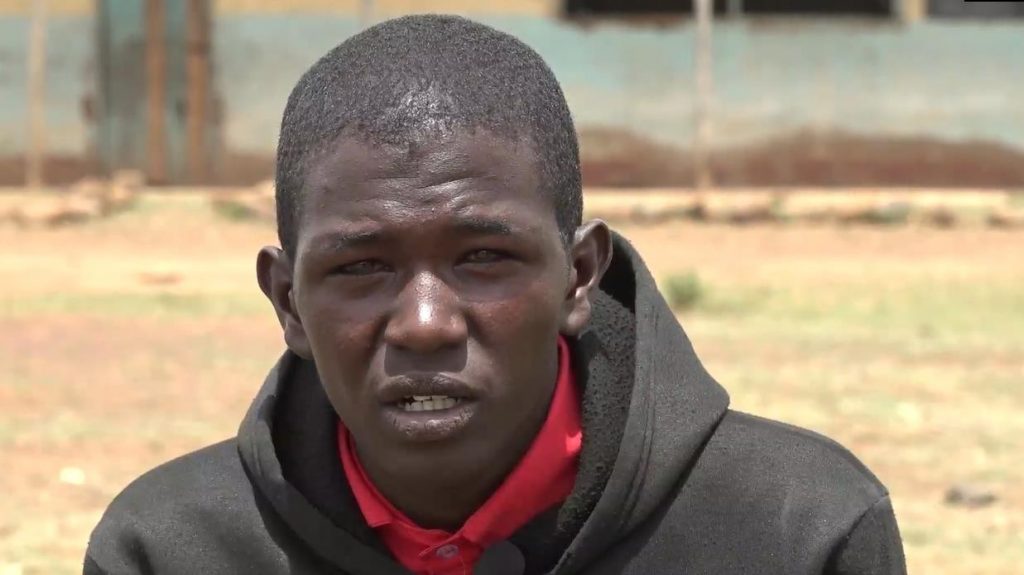
That was until Biotisho intervened. The program aimed to reach 3,000 adolescents in Loosuk and Suguta wards with information on nutrition education, weekly iron and folic acid supplementation for girls, mental health support via guidance and counselling, and life skills training. The package further included information and education on teenage pregnancy prevention, establishment of kitchen gardens, and water, sanitation and hygiene that encompassed, among other issues, menstruation. The package also had a component on protection from child marriages, female genital mutilation and child beading.
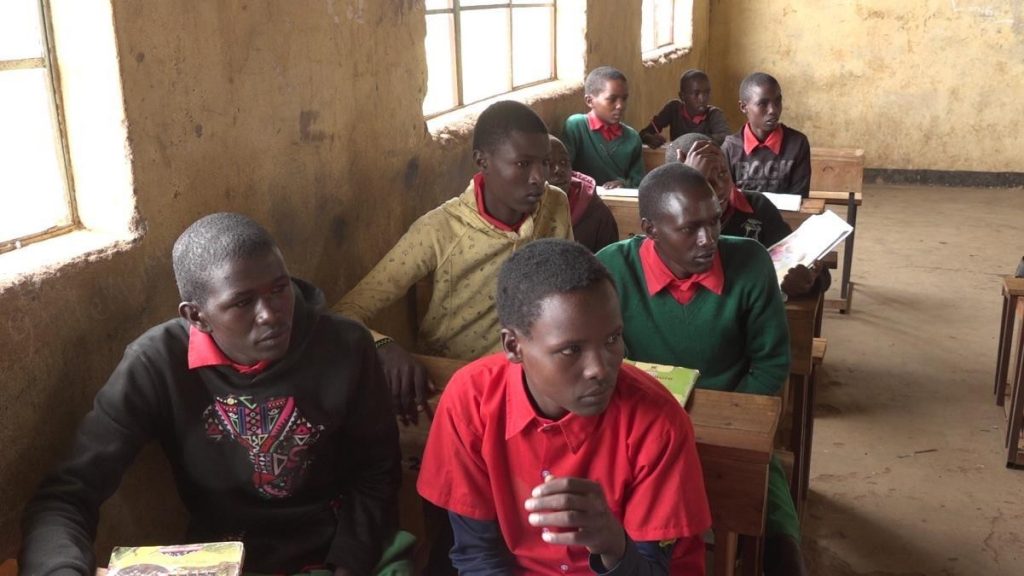
This is how hope was restored in the hearts of Asha and December, alongside other out-of-school adolescents. “Through the social behaviour change teachings, my broken life began to repair,” Asha says. “The idea of returning to school began to look attractive.” The same outcome happened upon December who decided to return to school, as did some of the other out-of-school children. “With the help of Biotisho, I’ve been able to extricate myself from the tentacles of peer pressure and return to school,” says December.


